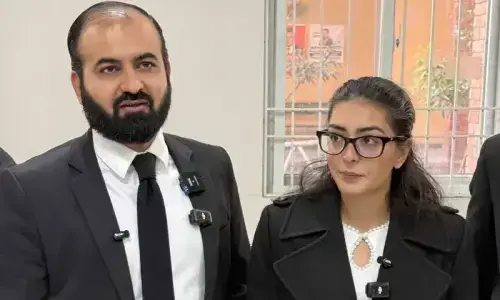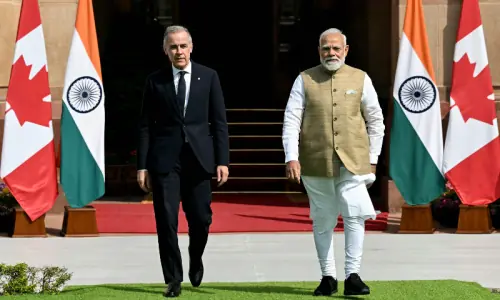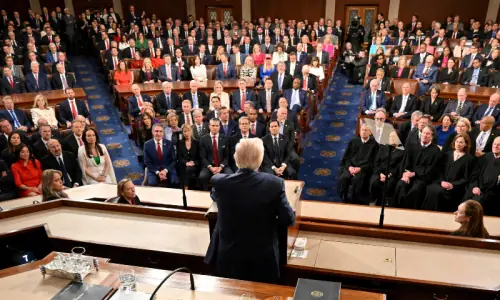Americans David Baker and John Jumper, together with Briton Demis Hassabis, shared the Nobel Prize in Chemistry on Wednesday for work revealing the secrets of proteins through computing and artificial intelligence.
The three were honoured for cracking the code of the structure of proteins, the building blocks of life, with the jury hailing their work as holding “enormous potential” in a range of fields.
Biochemist Baker, 62, was given half the award “for computational protein design”, while Hassabis and Jumper shared the other half “for protein structure prediction,” the Nobel committee said. “David Baker has succeeded with the almost impossible feat of building entirely new kinds of proteins,” it said in a statement.
In the early 2000s, Baker created a new protein, dubbed Top7, which was entirely different to all known existing proteins.
Jury describes findings as a ‘bolt from the blue’ for researchers working in the field
The Nobel jury described it as a “bolt from the blue” for researchers working in the field of protein design, as those previously created had only been able to imitate existing structures. It added that his work has led to the creation of proteins that can “lead to new nano-materials, targeted pharmaceuticals, more rapid development of vaccines, minimal sensors and a greener chemical industry”.
Hassabis and Jumper developed an AI model “to solve a 50-year-old problem: predicting proteins’ complex structures,” the jury said of the pair from AI research lab Google DeepMind — which rose to prominence when its AlphaGo model beat the champion of one of the world’s oldest board games Go.
‘Building blocks’
Hassabis, the 48-year-old Google DeepMind CEO and co-founder, and senior research scientist Jumper, who was born in 1985, were among those speculated to be contenders for this year’s Nobel for their work on the AI-model AlphaFold. They received the prestigious Lasker Award in 2023.
The AI tool is used to predict the three-dimensional structure of proteins based on their amino acid sequence, and the AlphaFold database now contains the predicted structure of over 200 million proteins.
Heiner Linke, chair of the Nobel Committee for Chemistry, told a press conference that “proteins are the molecules that enable life. Proteins are building blocks that form bones, skin, hair and tissue.” “To understand how life works, we first need to understand the shape of proteins,” Linke saidBaker told reporters Wednesday was turning out to be “quite a unique, special day” for him, after being woken by his phone ringing to learn about the prize.
‘Mitigate AI risks’
The researcher said he was really excited about “all the ways in which protein design can now make the world a better place,” while listing areas such as health, medicine as well as technology and sustainability. “Our new AI methods are much more powerful than our previous traditional scientific model methods,” he said.Both both the physics and chemistry laureates warned of the risks of AI, which promises to revolutionise society but has also raised apocalyptic fears.
“I am worried that the overall consequence of this might be systems more intelligent than us that eventually take control,” Hinton, 76, told reporters after the announcement. Hassibis echoed that thought.
Published in Dawn, October 10th, 2024































